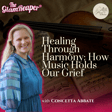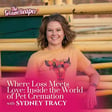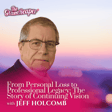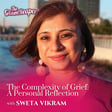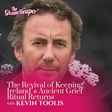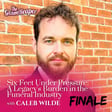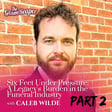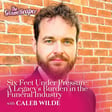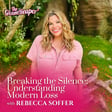
Aqua Transformation: The Metamorphosis of Bones in Water Cremation
In this episode of The Glam Reaper Podcast, our host Jennifer sits down with Emily Nelson, Founder & CEO at Be a Tree Cremation, to delve into a unique and eco-friendly approach to end-of-life disposition – also known as water cremation, resomation or alkaline hydrolysis.
Take a listen as Jennifer and Emily explore the emotional and sometimes perplexing choices people make when it comes to end-of-life disposition. From the initial care of the deceased to the actual water cremation procedure, Emily provides insights into the thoughtful process they follow at their facility.
In addition, Jennifer and Emily discuss the legal aspects and regulations surrounding water cremation, acknowledging the challenges and variations in state regulations across the United States.
Tune into this insightful conversation as they navigate the waters of water cremation and its impact on the funeral industry!
Key Topics:
-Introducing water cremation as a compassionate and innovative way to bid farewell.
-Understanding the final metamorphosis of bones in the concluding stages of the process.
-Exploring unconventional choices and anticipating transformation within the funeral space
-Water cremation - what it is and isn't
-Navigating the legal intricacies and regulations associated with water cremation
Quotes From The Episode:
We created Be a Tree cremation because I wanted to give people a viable path to get to that point and feel that connection.
- Emily Nelson
It's not always logical why people choose what they choose.
- Jennifer Muldowney
Timestamp:
[00:00] Podcast Intro
[00:52] Emily talks about Be a Tree Cremation, where they use a process called water cremation or alkaline hydrolysis
[04:37] Jennifer addresses the misconception and controversy surrounding water cremation.
[7:22] Emily explains that they don't encounter much resistance or negative reactions from people who have a direct interaction with their facility or receive proper education about the process of water cremation.
[09:10] Jennifer and Emily discuss the emotional and sometimes illogical aspects of people's choices regarding end-of-life disposition.
[13:45] Emily walks the audience through the process of water cremation, starting from the initial care of the deceased to the actual procedure.
[16:49] Jennifer and Emily talk about the final breakdown of skeletal remains in water cremation, highlighting the similarity to traditional cremation where the remains are transformed into ash-like powder.
[19:48] Jennifer and Emily briefly go over the legal aspects and regulations surrounding water cremation.
[22:26] Jennifer’s take on the challenges and variations in state regulations regarding cremation methods in the United States.
[24:07] Emily expresses her perspective on how disposition methods reflect individuals' values and desires in treating their bodies.
[25:28] Podcast Outro
Connect with Emily Nelson
Website - https://www.beatreecremation.com/
Instagram - https://www.instagram.com/beatreecremation/
Facebook - https://www.facebook.com/Be-a-Tree-Cremation
Tiktok - https://www.tiktok.com/@beatreecremation
Connect with Jennifer/The Glam Reaper:
Facebook Page - Muldowney Memorials: https://www.faceboo


